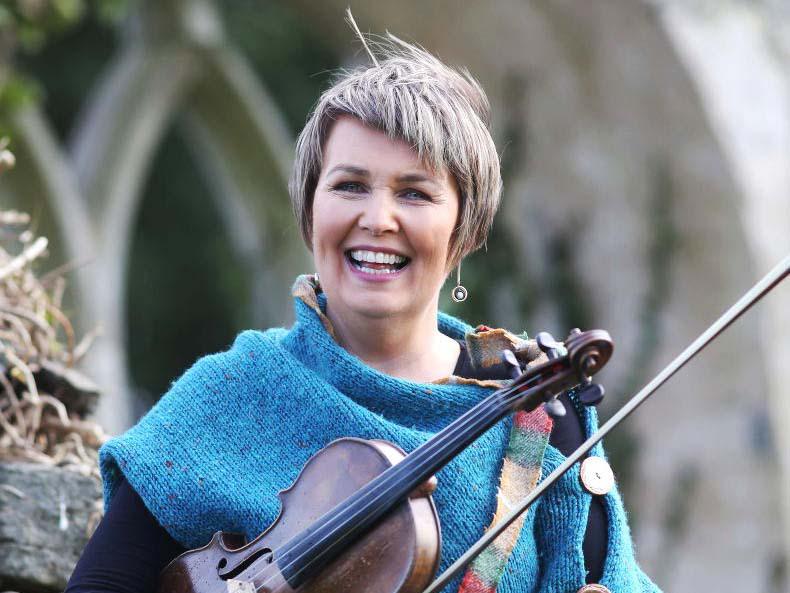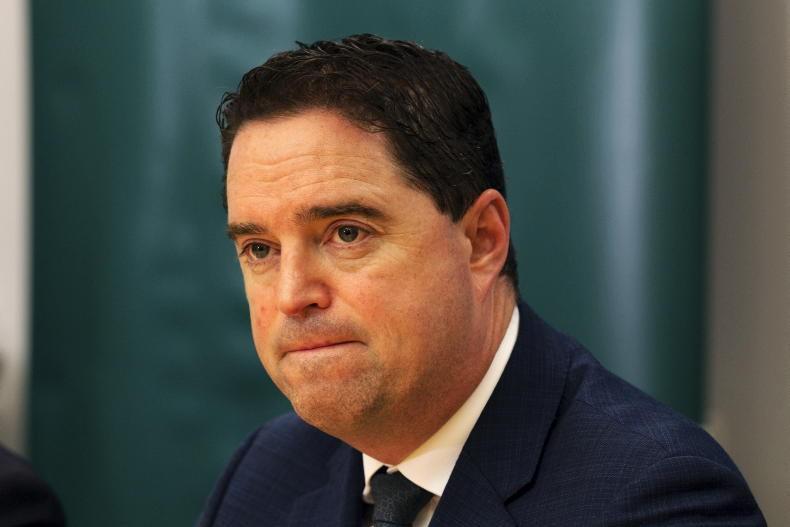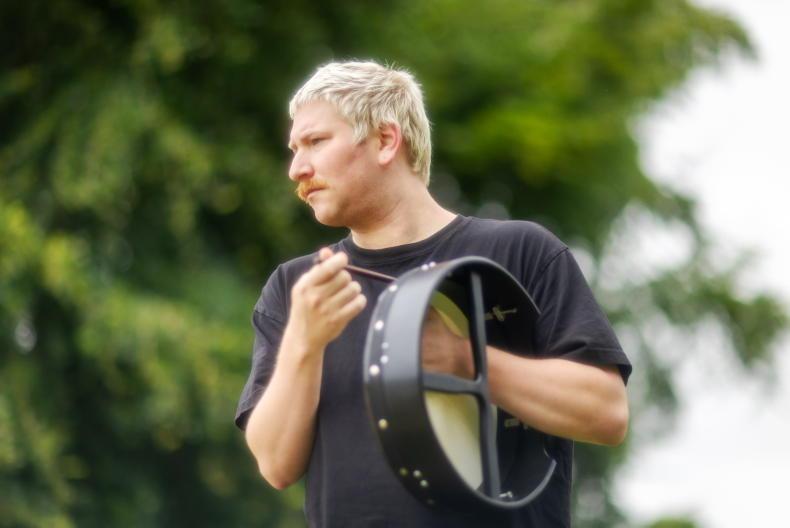Speaking with Liz Doherty, who lives in Buncrana, Co Donegal, is like meeting an old friend I haven’t seen in awhile. It’s no secret I’m not Irish, but I do come from a rich culture every bit as Celtic as Ireland’s – just in a different way.
Cape Breton Island (my home place in Nova Scotia, Canada) was largely settled by Scottish immigrants in the 19th century. They brought along their language, fiddles and – I’ll say it – Scottish stubbornness.
Over the centuries, our traditional music has developed a flavour of its own and Liz – herself a fiddler and performer – loves everything to do with Cape Breton.
I haven’t been home in years and speaking with Liz is a tonic for the homesickness I’ve been feeling. She says she was first introduced to Cape Breton music while studying music at UCC in the early 1990s.
Searching for tunes
“At that time, there was no Spotify or YouTube,” she laughs. “I didn’t even have a computer! So to even find out about Cape Breton music was bizarre. I had been on tour with some Donegal fiddlers in Scotland and heard a Scottish fiddler (named Alasdair Fraser) play some tunes from Cape Breton.
Finally, I met someone who had been to Cape Breton; she had loads of home tapes of fiddle music that people would send her
“I thought, ‘Those melodies are class; they’re gorgeous.’ And I thought Cape Breton was in France! I kept asking people about Cape Breton music and no one knew about it at all.
“There was a record store in Dublin called Claddagh Records and they had some recordings. Finally, I met someone who had been to Cape Breton; she had loads of home tapes of fiddle music that people would send her.”
Liz’s academic advisor at University College Cork (UCC), Mícheál Ó Súilleabháin (RIP), also appreciated Cape Breton music and encouraged Liz in her educational endeavours. He made a few phone calls, found an “Irish connection” in Nova Scotia (there’s always one) and helped Liz arrange her first trip to Canada to learn more.
It was how people would come in and just start playing music in their kitchens which felt familiar to me
“For me, Cape Breton at that time felt like what I imagined Ireland was 50 years before,” she says.
“In the 90s, everything was happening in people’s homes. It was how people would come in and just start playing music in their kitchens which felt familiar to me; but for a past I hadn’t lived here (in Ireland).
“Mícheál used to call Cape Breton my ‘Tír na nÓg’ – and indeed, when there I was footloose, fancy-free and could just immerse myself in the music and the culture. Every time I go back I revert to that carefree version of myself.”
Research
Liz ended up writing a dissertation on Cape Breton music; noting that the style would borrow elements from other genres – for example, jazz. In the early 20th century, many would travel to Boston for work and bring new variations to the music on their return.
There are some differences between Irish and Cape Breton trad – and some I found quite hard to wrap my head around
In Cape Breton, piano accompaniment is important – and some would argue (myself included) that, depending on the performer, it can be of equal importance to the fiddle.
“There are some differences between Irish and Cape Breton trad – and some I found quite hard to wrap my head around,” Liz says.
“In Ireland, every time you play a tune you will play it differently. If you recorded the same tune twice and matched them, there would be slight differences.
In Ireland we play the tune three or four times because you try new things each time you do it, in Cape Breton they only play the tune once or twice
“In Cape Breton, that happens at an earlier point. You decide, ‘This is going to be my version of this tune’ and you stick to that. It doesn’t change in the moment every single time, and I couldn’t get my head around that!
“In Ireland we play the tune three or four times because you try new things each time you do it, in Cape Breton they only play the tune once or twice, in what they call ‘the correct version’.”
A trad career
At UCC, Liz’s degree in music led her to a PhD. She started lecturing – first in UCC; then for the past 13 years at Ulster University. As a performer herself, she mainly taught performance and trad music history, music business and pedagogy. She says understanding the wider context of traditional music, in an historical sense, is as important as learning to play.
“The learning and teaching of trad can often be divorced from the wider context of it,” she says.
“It’s not just the music on its own, it’s part of a richer fabric and story.”
I’ve always kind of been a performer and an academic, and then I’d do other stuff within the trad arts
With this in mind, just before the pandemic, Liz took a leap of faith and – leaving her pensionable job at the university – started her own business, I Teach Trad. She provides professional development for traditional music teachers to help them incorporate the historical and cultural context of traditional music, alongside technique and skill.
“I’ve always kind of been a performer and an academic, and then I’d do other stuff within the trad arts, so I kind of had that balance – or imbalance! – going on for a long time,” she says. “Now I tell people I’m a recovering academic. I Teach Trad helps musicians become teachers to not just only pass on their music, but the wider cultural piece around it, as well.”
Develop your accent
“That’s the trick – it’s easy to show someone the nuts and bolts of anything, but with trad music, the magic is when you can take that baseline knowledge and make it your own,” she continues.
“You develop your own accent and you can’t teach someone that, because no one has your voice. So how can we, as teachers, create spaces where we’re providing the nuts and bolts, but we’re also not saying, ‘That’s the only way’?”
Aside from professional support, Liz also offers consultancy services; mainly to different organisations and educational groups.
“I’m fascinated by the idea of people’s capacity to reinvent,” she says. “I remember being at a conference for women a few years ago, and I was feeling like ‘I’m not loving my job anymore and heading for 50,’ and the speaker talked about three stages of a woman’s career: the optimistic early 20s, and then from mid-30s to mid-40s, you’re in this state called ‘pragmatic endurance.’ Then, after that, you have a choice – you can continue on or take a chance on your own ‘reinventive contribution.’ I thought, ‘I’m choosing that’.”
FleadhFest 2021
In addition to the pandemic itself, another thing Liz didn’t expect to happen was to be asked to produce music for television. However, this year, that is exactly what she has been doing with TG4, for FleadhFest 2021. Taking place on Sunday evenings at 9.30pm, they have been going around the country to bring the Fleadh to your sitting room. Connacht was featured on 25 July, and Munster is on 1 August. Then, a Sligo special will take place on the 6, 7 and 8 August.
“This is our second year now without a Fleadh, so we’re making a TV series out of it,” she says. “I work with Power Pictures – it’s been brilliant. We’re just back from Sligo – we were recording there the last week – and I’m looking forward to seeing that in August. “Musicians are so happy to be playing together again,” she continues. “Obviously, everybody is spaced out two metres apart – there’s no leaning in close together to play – but everybody is just so thrilled to be together. It’s been a tough 18 months for touring artists. They have been digging deep and coming up with some imaginative ways to reinvent and future-proof themselves; finding musical and creative skills which might not be straight down the line of performing, but related to it. There might be positives we take from [the pandemic] we don’t yet realise.”










SHARING OPTIONS